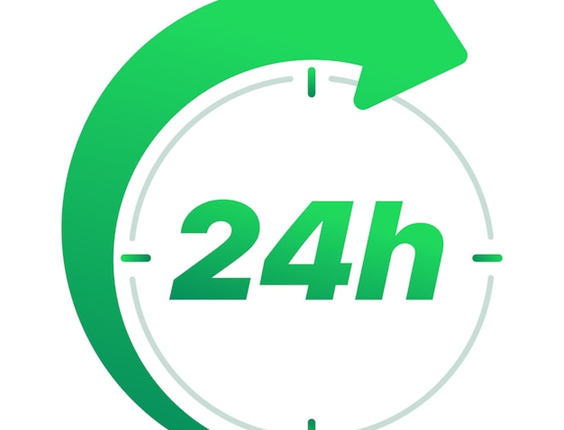In the heart of the bustling metropolis, Ami found herself wrestling with deadlines and ideas that refused to wait for the sun to rise. A freelance graphic designer with a penchant for late-night inspiration often found herself burning the midnight oil in her small apartment, surrounded by a sea of sketches and digital canvases.
One evening, after hours of creative struggle, Ami craved a change of scenery. The city outside her window was dimly lit, but she yearned for a place that mirrored her nocturnal work ethic. She ventured out into the cool night, discovering a 24-hour co-working space nestled between towering office buildings.
As she entered, the hum of creativity enveloped her. The space was alive with the tapping of keys, hushed conversations, and the soft glow of laptops. Ami marveled at the diverse crowd of night owls like herself, entrepreneurs fine-tuning business plans, and healthcare professionals preparing for the overnight shift.
This co-working haven became Ami’s sanctuary. She found solace in that her city, with its 24-hour spaces, recognized and accommodated the unique rhythms of its industrious inhabitants. The ability to access resources, collaborate, and draw inspiration at any hour not only fueled her creativity but also highlighted the pressing need for a 24-hour economy.
Ami’s experience was not isolated. It echoed a collective sentiment among those who thrived in the silent hours of the night or navigated unconventional work schedules. The demand for services, facilities, and opportunities around the clock was palpable—a call for the city to embrace a 24-hour economy that catered to the diverse needs of its dynamic and ever-moving population.
In a bold move to redefine Ghana’s economic landscape, the flag bearer of the National Democratic Congress (NDC) has put forward a visionary campaign message – the 24-Hour Economy Initiative. This ambitious proposal aims to transform Ghana into a nation that never sleeps, mirroring the economic activities witnessed in several developed countries. As we delve into the depths of this groundbreaking concept, we explore its potential ramifications on employment, security, economic prospects, and overall national development.
At the heart of the 24-Hour Economy Campaign lies the promise of increased employment opportunities. Extended operating hours across various sectors, including manufacturing, services, and retail, have the potential to generate a surge in job openings. With a predominantly youthful population, the initiative could harness the energy and aspirations of the Ghanaian workforce, contributing to a substantial reduction in unemployment rates.
In countries where a 24-hour economy has been successfully implemented, such as Singapore and the United States, the initiative has proven to be a catalyst for job creation, particularly in the service and hospitality industries. The dynamic nature of a 24-hour economy demands a workforce that operates in shifts, providing a diversified employment landscape.
While the prospect of a 24-hour economy is enticing, careful consideration must be given to the potential impact on security. Extended operating hours may pose challenges in maintaining law and order, necessitating an enhanced security infrastructure. However, experiences from developed nations suggest that effective planning and investment in technology can mitigate security concerns.
Cities like Tokyo and New York have successfully managed security in their 24-hour economies through advanced surveillance systems, increased police presence, and community engagement. Striking the right balance between economic prosperity and public safety will be crucial for the success of Ghana’s venture into round-the-clock economic activities.
Ghana’s embrace of a 24-hour economy could catapult the nation into a new realm of global competitiveness. By aligning itself with the evolving trends in the international business landscape, Ghana has the potential to attract foreign investment and position itself as a vibrant economic hub. The initiative could lead to increased productivity, efficiency, and innovation, fostering an environment conducive to sustained economic growth.
The experiences of cities like London and Hong Kong showcase the economic benefits of embracing a 24-hour model. These cities have become magnets for global businesses, drawing in talent and investments that contribute significantly to their economic prosperity.
At its core, the 24-Hour Economy Campaign represents a holistic approach to national development. The initiative has the potential to create a ripple effect, positively impacting various sectors, from transportation and infrastructure to healthcare and entertainment. The round-the-clock operation can result in increased revenue streams for businesses, contributing to the overall economic well-being of the nation.
As Ghana contemplates this transformative journey, the successful implementation of the 24-hour economy requires strategic planning, infrastructure development, and collaboration between the public and private sectors. It is a vision that holds the promise of shaping Ghana’s destiny as a beacon of economic vibrancy in the African continent.
In the coming months, the discourse surrounding the 24-Hour Economy Campaign will undoubtedly intensify. Ghanaians, businesses, and policymakers alike will engage in a collective dialogue to shape the future of the nation – a future where the heartbeat of economic activity resonates 24 hours a day.
Written by: MABEL DELASSIE AWUKU – FREELANCE JOURNALIST


Comments are closed.